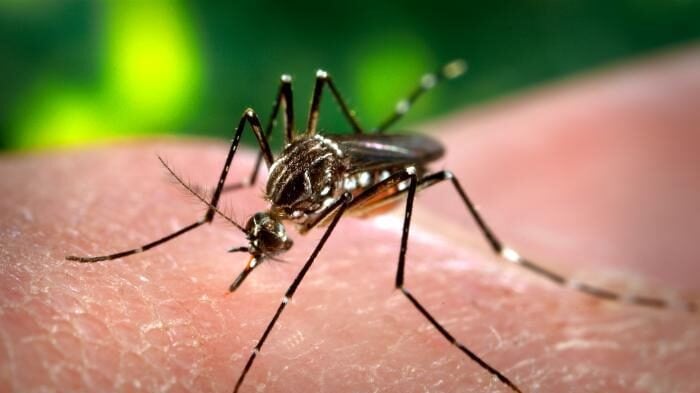
Mosquitos potentially carry a range of deadly diseases, from malaria to yellow fever. (Photo by James Gathany/CDC. Public Domain.)
WASHINGTON: The Defense Advanced Research Projects Agency may have been created to develop cutting-edge technology to help the US take on the Soviet Union in the Cold War, but now it’s taking on another deadly enemy: mosquitos.
DARPA’s latest idea, now entering its second phase, is to get down to the molecular level to make a topical cream that would actually alter the “microbiome” of human skin to make it less appetizing to the disease-carrying insects.
“The ReVector program aims to precisely, safely, and efficiently reduce mosquito attraction and biting, and, subsequently, to help maintain the health of military personnel operating in disease-endemic regions,” the agency said in a release last month.
While tiny compared to the USSR and totally lacking artillery, the mosquito is the deadliest animal on the planet, responsible for spreading malaria, which kills more than 400,000 people every year, in addition to other deadly diseases. Throughout human history militaries have struggled with mosquito-borne maladies, from the million-plus cases that waylayed soldiers during the Civil War to the over 80,000 cases among US servicemembers in Vietnam.
Even though a vast majority of those survived, the disease disrupted the forces’ ability to fight, at times in critical moments. Army researchers currently estimate malaria infections are responsible for up to 21,000 lost work hours and between $1.2 and $4.4 million per year in evacuation and medical costs.
The treatment for malaria has progressed significantly in recent decades, but the ReVector program aims to stop the disease before it can get into the human body at all. The program’s first phase involved the development of technology to “modify human skin microbes” and the “volatile molecules” it produces, and testing the effect of those modifications on mosquitos.
“In Phase 2, the team plans to advance testing in animal models and move complex microbiome communities,” ReVector program manager Linda Chrisley said in the release.
The release explained that “ultimately, ReVector seeks to develop topical formulations that could be applied shortly before a mission with minimal equipment or training, and last for at least two weeks without reapplication, offering improved, sustained protection against disease vectors.”
DARPA is working with Stanford University researchers on the project, and the agency notes the research is reviewed by the US Food and Drug Administration and “if necessary” the Environmental Protection Agency “to ensure that technologies are effective and do not pose a threat to humans or the environment.”
Out of INF, Army deploys Typhon weapon to the Philippines
“This is a significant step in our partnership with the Philippines, our oldest treaty ally in the region,” said Brig. Gen. Bernard Harrington, commanding general of the 1st MDTF.



























